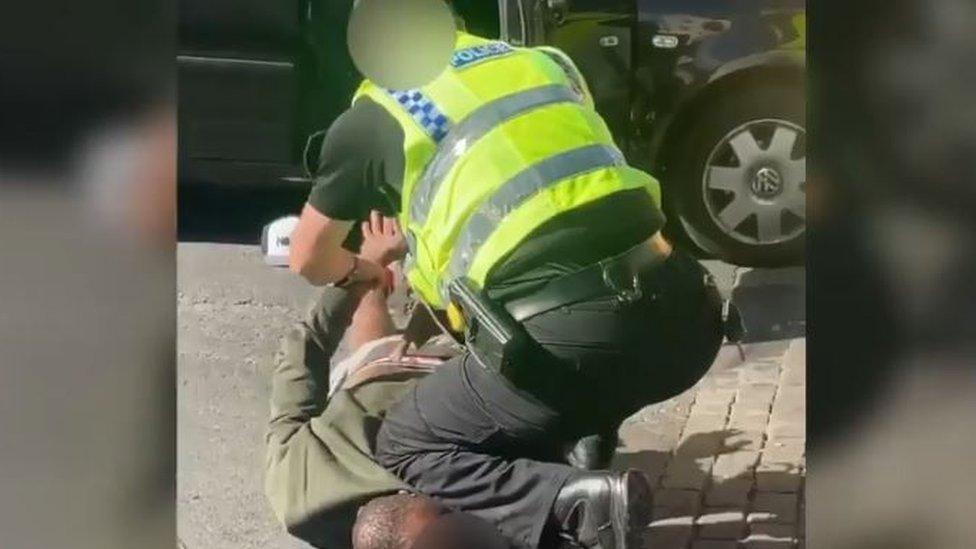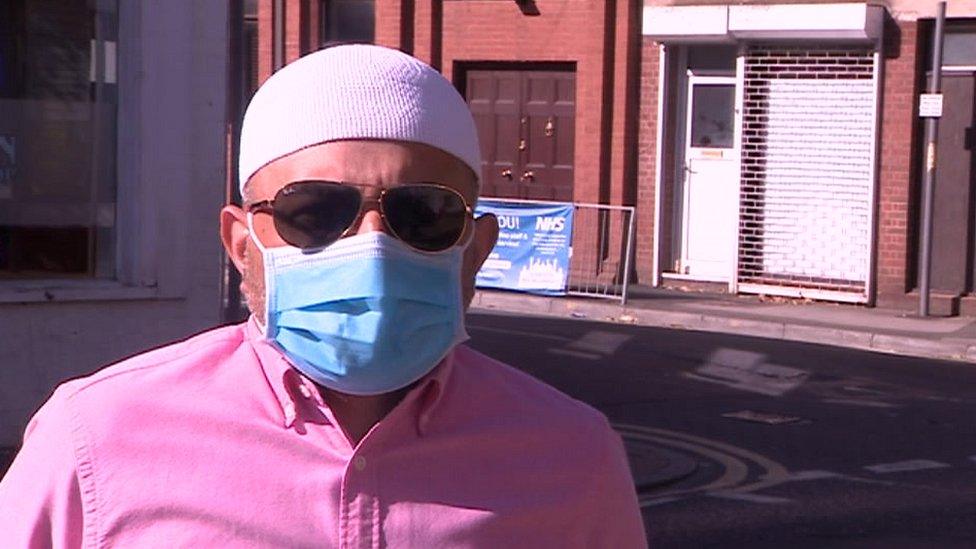Gloucestershire 'knee on neck' arrest response 'lacked empathy'
- Published

The arrest took place in Barton Street in Gloucester
A police force has apologised for "a lack of empathy" in its response to an arrest where an officer subdued a suspect with his knee.
A witness said a black man was left "struggling to breathe" as he was apprehended in July.
Gloucestershire Police originally said appropriate restraint techniques were used.
After concerns were raised, the force said its first statement did not "acknowledge the deep distress caused".
The arrest on Barton Street, Gloucester, was close to an anti-racism mural featuring George Floyd - who died when a US police officer knelt on his neck for eight minutes.
Witness Hussain Vorajee said watching the suspect being restrained reminded him of what happened to Mr Floyd.
He said the man was "treated worse than an animal".
"The officer was on top of him and had his hands on his face and his knee on him and the culprit was struggling to breathe," he said.
At the time, Gloucestershire Constabulary said its professional standards department had reviewed the footage and body-worn video and decided the appropriate techniques were used when restraining the man.
It added excessive force was not used, and there were no breaches of the standards of professional behaviour by the officer and no further action would be taken.

Hussain Vorajee, who filmed the arrest, said it reminded him of how George Floyd was treated
However, a new independent panel created to address issues of racial inequality raised concerns about the statement released by police and the use of force.
It also made recommendations regarding the use of body-worn cameras and the importance of them being switched on at the earliest opportunity.
In a new statement, the force said: "Gloucestershire Constabulary is sorry that the original statement in response to concerns about the restraint used by the officer lacked empathy and failed to acknowledge the deep distress caused by the incident.
"While the professional standards department of the constabulary deemed that the restraint was proportionate, the constabulary will be using a reflective practice process to learn from the incident as a whole and to improve."